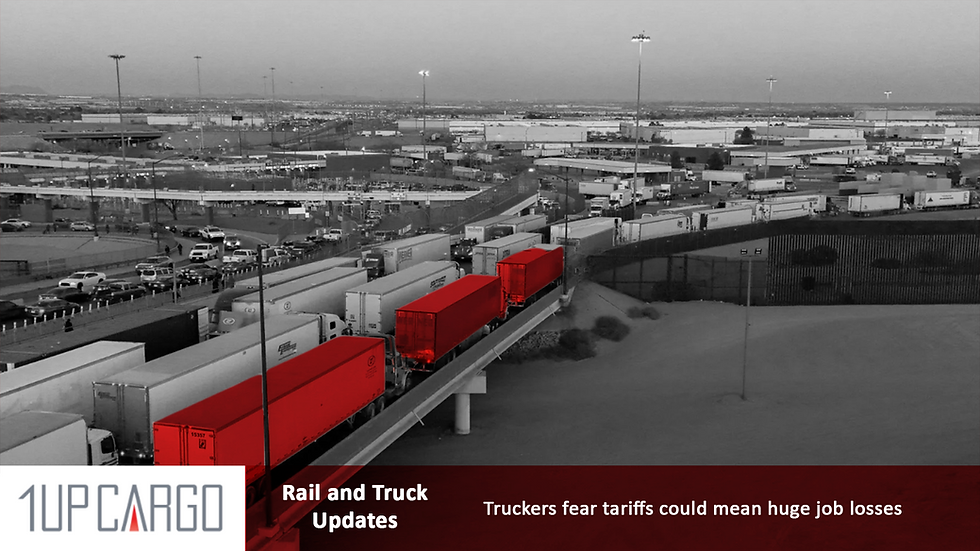(Montreal) Truckers fear that the 25 percent tariffs that U.S. President Donald Trump is still threatening to impose will have disastrous consequences for their sector, as trade between Canada and the U.S. would suffer.

brookings
"If these tariffs remain in place at these levels for an extended period of time, it could be the final nail in the coffin for many truck fleets," warned Canadian Trucking Alliance President Stephen Laskowski.
"It's a bleak picture."
Tariffs on Canadian imports into the U.S., which won't take effect for at least 30 days, would be the biggest trade shock north of the border in nearly a century, according to RBC Economics.
The last-minute postponement, announced by Prime Minister Justin Trudeau late Monday afternoon, came as the tariffs were supposed to come into effect on Tuesday, according to President Trump.
In response to the initial threat, Ottawa promised to impose equal tariffs on $155 billion of U.S.-made goods, ranging from beer and cheese to office chairs, drones and dishwashers.
Many of the 5,000 member companies of the Canadian Trucking Alliance are already struggling due to weaker consumer demand.
"It's a hyper-competitive situation," Laskowski said of the struggling sector.
"When the economy catches a cold, the trucking industry catches pneumonia."
Some 120,000 Canadian truckers transport cross-border shipments, he said. Transportation to the U.S. accounts for about two-thirds of all Canadian truck loads, according to transportation technology company Arrive Logistics.
In 2023, truckers from both countries transported US$435.7 billion worth of goods across the border, according to the U.S. Department of Transportation. Truck freight accounts for 60% of cross-border trade between Canada and the United States.
The manufacturing sector is particularly vulnerable, as it includes tens of billions of dollars worth of auto parts and vehicles trucked to the U.S. from Canada.
A potential decline in cross-border trade would push more drivers to turn to the domestic trucking market, said Joseph Khoueiry, whose Fabreville Inc. operates five tractor-trailers between Toronto and Montreal.
As the number of truckers vying for transportation contracts increases, the prices they charge will fall, hurting business revenues.
"They will compete with us. This will affect the rate, it will eat away at our margins," he said.
Khoueiry added that spare parts for his fleet would also likely see their price increase due to the 25 per cent tariffs imposed on auto imports from the United States, paid with an even weaker Canadian dollar.
Trading around 68 cents U.S. on Monday, the loonie fell to its lowest level since 2003, and currency experts predict further declines are likely if markets anticipate the tariffs will remain in place for the long term.
The Canadian Trucking Alliance has called on Canada's premiers to do more to facilitate interprovincial trade. Laskowski also believes the federal government should reconvene Parliament to respond to the crisis.
"Our leaders must come together and find solutions," he said.
Written by: Christopher Reynolds, The Canadian Press, CIFFA